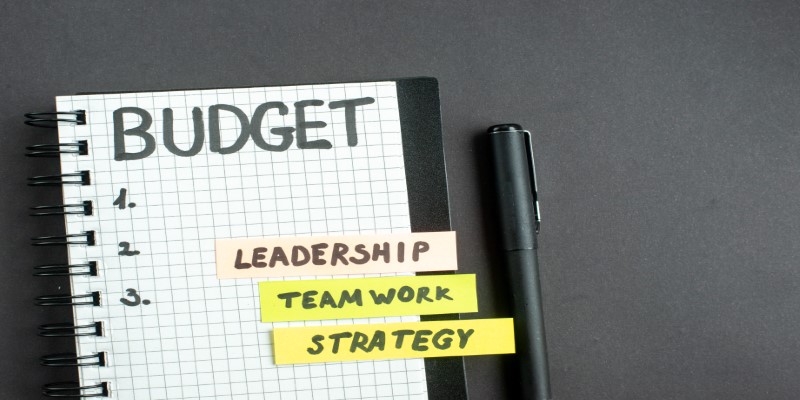Migraines can be debilitating, disrupting both work and personal life. While there are treatments for migraines once they start, the focus here is on preventiontaking steps to avoid the onset of migraines entirely. This article explores ten simple yet effective strategies that can help you stop migraines before they even begin.
From managing stress to making dietary changes, these methods can make a significant difference in reducing the frequency and severity of migraines. By understanding your triggers and making lifestyle adjustments, you can take control of your health and minimize migraine attacks.
Here are ten approaches to help prevent migraines before they take hold.
A key aspect of preventing migraines is identifying what triggers them. Common migraine triggers include stress, certain foods, and environmental factors like bright lights or strong smells. To identify your specific triggers, consider keeping a migraine diary. This will help you track what you eat, your stress levels, and your environment when migraines occur.
Once you identify your triggers, the next step is to limit exposure to them. For instance, if certain foods like chocolate or processed meats trigger your migraines, avoid these items. Similarly, manage your exposure to bright lights and loud noises to reduce the risk of a migraine.
Irregular sleep patterns can increase the risk of migraines. Getting too much or too little sleep is a common trigger, so maintaining a consistent sleep schedule is essential. Try to go to bed and wake up at the same time every day, even on weekends.

To improve your sleep quality, consider creating a calming pre-sleep routine. This might include limiting screen time, reducing caffeine intake, and keeping your bedroom dark and quiet. Good sleep hygiene can greatly reduce the chance of migraines related to poor sleep.
Stress is one of the most significant triggers of migraines, so managing it is crucial. Relaxation techniques like yoga, meditation, and deep breathing exercises can help. These practices not only lower stress but also promote overall well-being, reducing the likelihood of migraines.
Regularly practicing stress management techniques can help build resilience to everyday stressors. Whether it's a few minutes of deep breathing or a short meditation session, making relaxation a part of your daily routine can reduce migraine frequency.
Dehydration is a well-known trigger for migraines. Drinking enough water throughout the day helps your body function optimally and can reduce the risk of a dehydration-induced migraine. The general guideline is to aim for about eight glasses of water per day, but individual needs vary.
Staying hydrated is especially important during physical activity or hot weather when your body loses fluids more quickly. Incorporating hydrating foods like fruits and vegetables into your diet can also help maintain hydration levels.
Low blood sugar levels, often caused by skipping meals, can trigger migraines. To prevent this, it's important to eat balanced meals at regular intervals. Foods rich in protein, fiber, and healthy fats can help maintain steady blood sugar levels.
In addition, avoid processed foods that may contain artificial additives or preservatives that could trigger migraines. Sticking to a consistent eating schedule and avoiding long gaps between meals can also help prevent migraine attacks.
Regular exercise is another effective way to prevent migraines. Physical activity helps reduce stress, improves sleep, and boosts overall healthall factors that can reduce migraine frequency. Exercises like walking, swimming, or yoga are gentle on the body and can be great for maintaining consistency without triggering migraines.
It's important to start slowly if you're new to exercising. Some people may experience migraines related to strenuous activity, so be mindful of your limits and consult a healthcare professional if needed.
Caffeine can act as migraine triggers for many people. While caffeine in small amounts may help ease migraines for some, too much can have the opposite effect. Gradually reducing your caffeine intake can help prevent migraines in those who are sensitive to it.
For individuals who experience frequent migraines, preventive medications may be an option. These medications, prescribed by a doctor, are taken daily to reduce the frequency and intensity of migraines. They work by addressing the underlying causes of migraines, such as blood vessel constriction or nerve sensitivity.

If lifestyle changes arent enough to prevent migraines, talk to your healthcare provider about whether preventive medication could be right for you. Common options include beta-blockers, antidepressants, and anti-seizure medications.
Hormonal fluctuations, particularly in women, can be a significant trigger for migraines. Managing hormonal changes through medication or lifestyle adjustments can reduce the frequency of hormone-related migraines.
If you suspect hormonal changes are causing your migraines, consult your healthcare provider. Hormonal therapy or other treatments may be recommended to help manage these fluctuations.
Environmental factors like bright lights, strong smells, or loud noises can also trigger migraines. If you are sensitive to these stimuli, try to minimize your exposure. For example, wearing sunglasses outdoors or in brightly lit spaces can help reduce light sensitivity. Similarly, using earplugs or noise-canceling headphones in loud environments may help.
Creating a calm, controlled environment at home and work can also reduce exposure to environmental triggers. If you find yourself in a triggering environment, taking short breaks to step outside or move to a quieter space can be effective.
Preventing migraines is possible with the right approach. By identifying your triggers, adopting healthy habits, and managing stress, you can reduce the likelihood of a migraine before it starts. Everyones triggers and experiences with migraines are unique, so its essential to find what works best for you.
Making small but consistent changes to your routinewhether it's improving sleep hygiene, staying hydrated, or managing stresscan have a significant impact on your migraine frequency. If lifestyle adjustments arent enough, consider consulting a healthcare provider about preventive medications.

By Celia Shatzman/Sep 22, 2024

By Alison Perry/Sep 22, 2024

By Kristina Cappetta/Sep 18, 2024

By Verna Wesley/Sep 24, 2024

By Sid Leonard/Oct 29, 2024

By Noa Ensign/Sep 22, 2024

By Noa Ensign/Sep 18, 2024

By Paula Miller/Sep 24, 2024

By Darnell Malan/Sep 05, 2024

By Susan Kelly/Sep 06, 2024

By Triston Martin/Sep 06, 2024
By Celia Shatzman/Sep 17, 2024